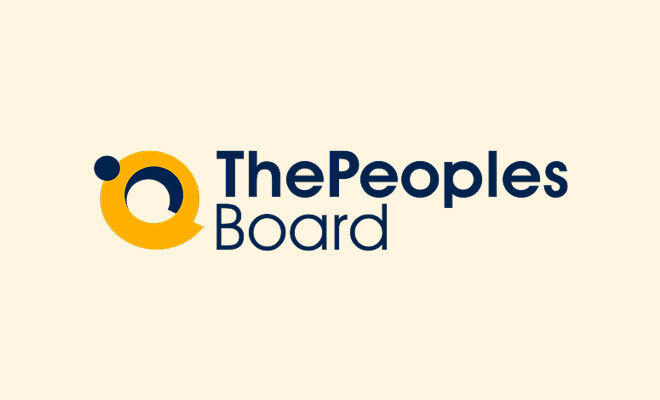Stepping into the world of Human Resources (HR) can be daunting for anyone. As such, picking the most suitable starting point for your HR career is not a decision to be made lightly. From Talent Acquisition to Compliance Management, the industry offers a variety of options that are ready for you to explore.
Now that you have decided to enter the HR field, we are here to help you in selecting what HR role might be the most suitable one for you. This means understanding just what each position entails.
Any position in the HR department can be as demanding as it is fulfilling. For anyone looking to build a career in the field, there is no shortage of positions to start their journey. Keep in mind that each HR position has responsibilities that tie together to create a strong support structure for the company.
Here are the top entry-level HR roles and their responsibilities that can help you with your career:
1. HR Intern
An HR Intern is an entry-level position for individuals exploring a career in human resources. Interns gain hands-on experience by assisting with HR activities such as recruitment, onboarding, and maintaining employee records.
Responsibilities:
- Assisting with recruitment activities, such as scheduling interviews.
- Updating employee records in HR software.
- Supporting onboarding processes for new hires.
- Researching HR policies and best practices.
2. HR Assistant
An HR Assistant provides critical administrative support to the HR team. They act as a key point of contact for employees with basic HR queries and ensure smooth documentation and operational workflows.
Responsibilities:
- Managing employee records and maintaining HR databases.
- Assisting with payroll processing and attendance tracking.
- Coordinating interviews and onboarding sessions.
- Responding to employee queries about HR policies.
3. HR Coordinator
An HR Coordinator ensures the efficient running of day-to-day HR operations. They bridge communication between employees and HR management, often handling recruitment, onboarding, and training logistics.
Responsibilities:
- Organizing recruitment and onboarding processes.
- Coordinating training sessions and workshops.
- Preparing HR reports for management.
- Managing internal communication related to HR announcements.
4. HR Associate
An HR Associate is a foundational role that supports various HR functions such as hiring, employee engagement, and policy enforcement. They act as a link between HR management and employees for operational tasks.
Responsibilities:
- Supporting end-to-end recruitment processes.
- Addressing employee grievances or concerns.
- Assisting in performance review documentation.
- Maintaining compliance with HR policies.
5. Recruitment Coordinator
A Recruitment Coordinator organizes and manages the logistics of the hiring process. They ensure a seamless experience for candidates and hiring teams by managing communication and interview schedules.
Responsibilities:
- Scheduling and coordinating interviews with candidates.
- Communicating with candidates and hiring managers.
- Posting job advertisements on various platforms.
- Tracking applications and maintaining a recruitment database.
6. Talent Acquisition Coordinator
A Talent Acquisition Coordinator works closely with the recruitment team to identify and attract the best talent. They contribute to employer branding and ensure a positive candidate experience throughout the hiring process.
Responsibilities:
- Assisting with creating talent acquisition strategies.
- Building relationships with job seekers and recruitment agencies.
- Managing applicant tracking systems.
- Supporting employer branding initiatives.
7. Diversity and Inclusion Coordinator
A Diversity and Inclusion Coordinator promotes workplace inclusivity and equal opportunities. They focus on developing and implementing programs to foster a diverse and welcoming work culture.
Responsibilities:
- Organizing events to promote diversity awareness.
- Supporting initiatives to hire diverse talent.
- Conducting surveys to assess inclusivity in the workplace.
- Collaborating with teams to implement D&I policies.
8. Benefits Administrator
A Benefits Administrator oversees employee benefits programs to ensure they are effectively implemented and communicated. They work with providers and employees to manage health insurance, retirement plans, and other benefits.
Responsibilities:
- Managing insurance plans, such as health and life insurance.
- Educating employees about available benefits.
- Ensuring compliance with government regulations.
- Coordinating with benefit providers to resolve employee issues.
9. HR Generalist
An HR Generalist handles a broad spectrum of HR functions, making them versatile HR team members. They manage recruitment, compliance, payroll, and employee relations, ensuring smooth HR operations.
Responsibilities:
- Supporting recruitment, onboarding, and training processes.
- Managing employee relations and addressing grievances.
- Overseeing payroll and benefits administration.
- Ensuring HR compliance with labor laws.
10. HR Support Specialist
An HR Support Specialist provides technical and administrative support for HR systems and processes. They troubleshoot system issues, maintain data accuracy, and support employees with HR-related queries.
Responsibilities:
- Assisting employees with HR system-related issues.
- Updating HR tools and platforms.
- Helping with onboarding and training technicalities.
- Documenting and tracking HR-related data.
11. HR Compliance Coordinator
An HR Compliance Coordinator ensures the organization adheres to labor laws and regulations. They assist in creating compliance policies, conducting audits, and maintaining records to avoid legal risks.
Responsibilities:
- Maintaining up-to-date records of HR compliance.
- Conducting audits to ensure adherence to labor laws.
- Assisting in drafting compliance-related policies.
- Coordinating with legal teams for compliance updates.
12. Employee Engagement Coordinator
An Employee Engagement Coordinator drives initiatives to improve employee satisfaction and workplace morale. They design engagement programs and gather feedback to create a positive work environment.
Responsibilities:
- Organizing team-building and employee engagement activities.
- Conducting surveys to gauge employee satisfaction.
- Suggesting initiatives to improve workplace morale.
- Communicating engagement strategies to employees.
13. HRIS Analyst
An HRIS Analyst specializes in managing and optimizing HR technology systems. They analyze workforce data and provide insights to improve HR processes, ensuring the organization utilizes HR tools effectively.
Responsibilities:
- Managing and maintaining HR software systems.
- Analyzing HR data to improve decision-making.
- Ensuring HR data security and accuracy.
- Training employees on HRIS tools.
14. Compensation Analyst
A Compensation Analyst focuses on creating competitive salary structures to attract and retain talent. They conduct market research and analyze data to recommend pay scales and benefit adjustments.
Responsibilities:
- Conducting market research to benchmark salaries.
- Assisting in designing incentive programs.
- Ensuring compensation compliance with regulations.
- Preparing salary reports for HR teams.
15. Staffing Coordinator
A Staffing Coordinator manages workforce planning and ensures adequate staffing levels to meet business needs. They coordinate schedules, handle hiring for temporary roles, and maintain staffing records.
Responsibilities:
- Scheduling shifts and managing workforce allocations.
- Assisting in temporary and contract hiring processes.
- Maintaining records of staffing requirements.
- Communicating staffing updates to teams.
16. Payroll Administrator
A Payroll Administrator handles the end-to-end payroll process to ensure employees are paid accurately and on time. They manage deductions, tax compliance, and payroll-related issues for employees.
Responsibilities:
- Processing monthly payroll and handling salary deductions.
- Ensuring compliance with tax laws and regulations.
- Addressing payroll-related queries from employees.
- Preparing payroll reports for finance teams.
17. Training Assistant
A Training Assistant supports an organization’s learning and development initiatives. They coordinate training programs, prepare materials, and track employee participation to enhance skill development.
Responsibilities:
- Organizing training sessions and maintaining schedules.
- Preparing training materials and resources.
- Collecting feedback to improve training programs.
- Tracking employee participation in training activities.
Conclusion
Having a basic understanding of entry-level HR roles is crucial if you want to start your HR career on the right footing. This understanding should help you evaluate the available job options to your existing skill set as well as your career plans.
If there is any role in particular that you want to pursue, ensure that you have the necessary qualifications for it as well as the mindset. Alternatively, you can play to your strengths and choose a role that suits your existing skills the best.


